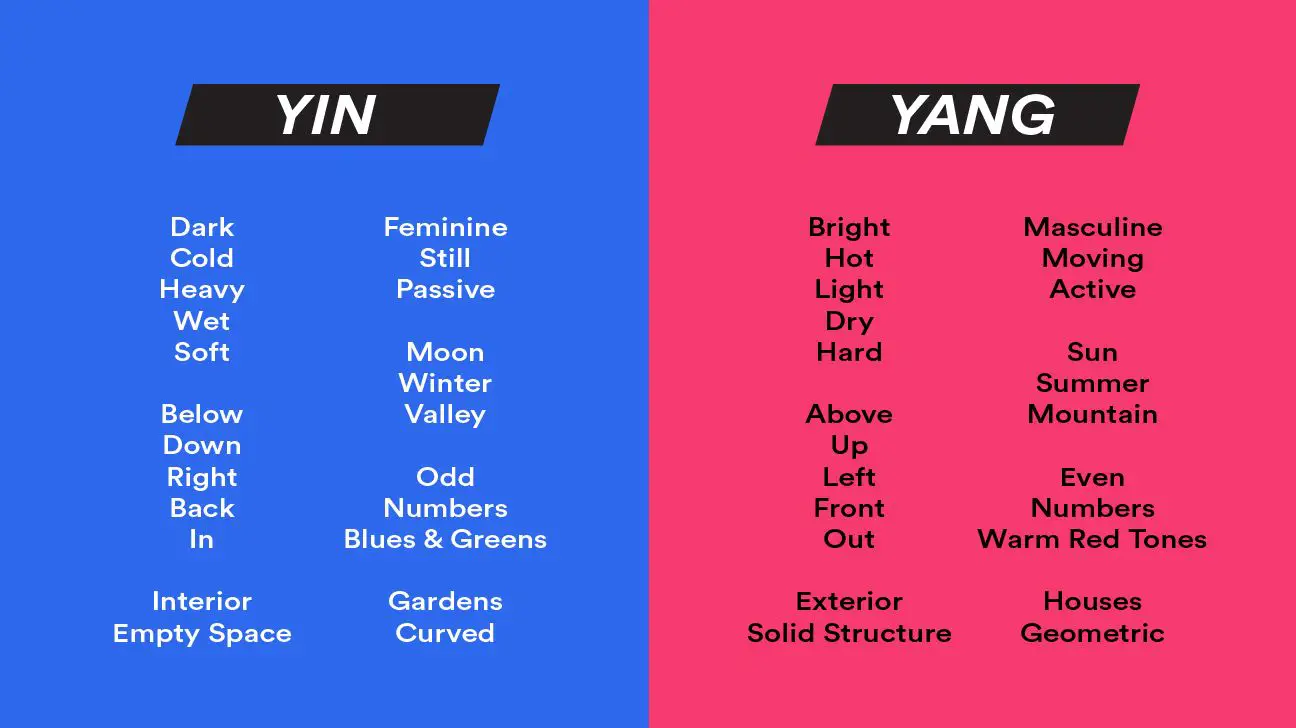Feng Shui is an ancient Chinese practice that harmonizes energy in spaces. It focuses on arranging your home or workspace to promote balance and positivity.
Starting with Feng Shui can feel overwhelming, but it doesn’t have to be. By understanding its basic principles, you can create a more peaceful and inviting environment. Feng Shui is about more than just décor; it’s a way to enhance your well-being and bring clarity into your life.
Whether you’re looking to improve your focus, attract good fortune, or simply feel more at ease, Feng Shui offers practical tips to get started. This guide will introduce you to simple, beginner-friendly techniques that anyone can use to transform their space and embrace a more harmonious lifestyle.
Related Article: Basic Rules of Feng Shui: Unlock Harmony at Home

Related Article: Feng Shui Bedroom Rules: Transform Your Sleep & Energy
Introduction To Feng Shui
Feng Shui is an ancient Chinese practice that harmonizes your surroundings. It focuses on the flow of energy, or “Chi,” in your space. By arranging objects purposefully, you can create a peaceful and balanced environment. For beginners, understanding the basics is the first step to improving your well-being and home energy.
What Is Feng Shui?
Feng Shui means “wind” and “water” in Chinese. These elements symbolize balance and flow in nature. The practice involves arranging spaces to align with natural energy forces. It considers the placement of furniture, colors, and even lighting. The goal is to promote positivity and reduce stress in your environment.
Benefits Of Practicing Feng Shui
Feng Shui can improve your mental clarity and emotional balance. A well-arranged space may help you feel more productive and relaxed. It can also enhance relationships by creating harmony within shared areas. Many believe it attracts prosperity and good fortune too. Even small changes can make a noticeable difference in your daily life.
:max_bytes(150000):strip_icc()/kam-idris-_HqHX3LBN18-unsplash-32a136d8ff574b6a82875d506486d7a3.jpg)
Credit: www.thespruce.com
Principles Of Energy Flow
Energy flows in your space through balance and harmony. Feng Shui suggests decluttering and arranging furniture to create openness. Proper lighting and natural elements, like plants, help maintain positive energy circulation.
### Principles of Energy Flow
Feng Shui is all about creating harmony between you and your surroundings. At its core, it revolves around the movement and balance of energy. Understanding how this energy flows can help you design a home that feels calm, inviting, and full of life.
Understanding Chi
Chi (pronounced “chee”) is the life force or energy that flows through everything. In Feng Shui, the goal is to ensure that this energy moves freely and doesn’t get stuck. Stagnant chi can make a space feel heavy or unwelcoming, while overly fast-moving chi might leave you feeling restless.
Picture your home as a river of energy. If furniture blocks doorways or clutter piles up in corners, it’s like putting rocks in that river. Clear pathways and open spaces allow chi to flow smoothly, bringing vitality and balance to your space.
Start small. Is there a cluttered corner you’ve been ignoring? Tidy it up and notice how the room feels lighter, almost as if it’s breathing again.
Balancing Yin and Yang
Yin and Yang represent opposing but complementary forces—think dark and light, soft and hard. A balanced home needs a mix of both to feel complete. Too much Yin, and your space might feel too passive or dull. Too much Yang, and it could feel overwhelming or chaotic.
Imagine a bedroom with harsh overhead lighting (Yang) and no soft furnishings (Yin). It’s not exactly relaxing, is it? Add a cozy throw, dimmable lamps, or curtains to introduce more Yin energy for balance.
But don’t overdo it. A living room that’s all Yin—think dark colors, heavy curtains, and no natural light—might feel gloomy. Open the curtains during the day or add a mirror to reflect light and bring some Yang energy into the mix.
Ask yourself: does your space feel too loud or too quiet? Adjusting the balance can make a noticeable difference in how you feel.
Feng Shui doesn’t have to be complicated. By focusing on the flow of chi and balancing Yin and Yang, you can start creating a space that feels just right. Take a few moments to observe your home today—what small changes can you make to improve its energy?
Choosing The Right Colors
Choosing the right colors is essential in Feng Shui. Colors impact energy flow and set the mood in your home. They create harmony and influence emotions. Picking the right shades can improve balance and positivity in your space.
Colors And Their Meanings
Each color has a unique energy in Feng Shui. Red represents passion and courage. Yellow symbolizes warmth and happiness. Green is linked to growth and healing. Blue promotes calmness and relaxation. White signifies purity and clarity. Black stands for depth and protection. Understanding these meanings helps you select colors wisely.
Selecting Colors for Each Room
Choose colors based on the room’s purpose. For living rooms, opt for warm tones like yellow or beige. These shades encourage social interaction and comfort. Bedrooms benefit from calming colors like blue or lavender. They create a peaceful atmosphere for sleep.
In kitchens, consider earthy tones like brown or green. These colors promote nourishment and harmony. Bathrooms work well with white or light blue to enhance cleanliness and freshness. For home offices, try green or light gray. These tones improve focus and productivity.
Arranging Furniture For Harmony
Feng Shui emphasizes balance and positive energy flow in your home. Arranging furniture thoughtfully can create harmony and improve well-being. Small changes in placement can make a big difference.
Start by analyzing the purpose of each room. Focus on making spaces functional and inviting. Avoid overcrowding areas to maintain a sense of openness and relaxation.
Placement Tips For Living Spaces
Place your sofa against a solid wall for support and stability. Avoid positioning it with its back to the door, as this can create unease. If this isn’t possible, use a console table or plants behind the sofa for balance.
Arrange chairs to encourage conversation and connection. Ensure there’s enough space to move around easily. Keep pathways clear to allow energy to flow freely through the room.
Position your coffee table within arm’s reach of seating. Round or oval tables are ideal, as they avoid sharp edges that disrupt energy. If you prefer a rectangular table, soften the edges with a decorative cloth or runner.
Avoiding Clutter
Clutter blocks energy and creates stress. Keep surfaces clean and organized. Store items you don’t use daily in cabinets or drawers. This ensures your space feels lighter and more inviting.
Use furniture with built-in storage to hide excess items. Multifunctional pieces help maintain order in smaller spaces. Avoid over-decorating shelves and tables. A few meaningful items are better than many random ones.
Regularly remove items you no longer need. Create a habit of decluttering each season. This keeps your home fresh and aligned with positive energy flow.
Incorporating Natural Elements
Incorporating natural elements into your living space can bring balance and harmony. Feng Shui emphasizes connecting with nature to create a peaceful environment. By introducing plants, water, and other elements, you can enhance energy flow and improve well-being. Start with small changes to create a welcoming, tranquil atmosphere.
Using Plants Effectively
Plants play a vital role in Feng Shui by purifying air and boosting energy. Choose healthy, vibrant plants to symbolize growth and vitality. Place them in areas where energy feels stagnant, like dark corners or empty spaces. Avoid plants with sharp leaves or thorns, as they can disrupt positive energy. Popular choices include bamboo, jade plants, and peace lilies. Keep plants well-maintained to ensure they radiate positive energy.
Integrating Water Features
Water features symbolize wealth and abundance in Feng Shui. A small fountain or an aquarium can attract positive energy into your home. Place water features near entryways or in living areas for maximum effect. Ensure the water is clean and flowing to promote good energy. Avoid placing water elements in bedrooms, as this can disrupt restful sleep. Choose designs that match your home’s style to maintain harmony.

Credit: greatist.com
Enhancing Entryways And Doors
Enhancing entryways and doors is a fundamental step in Feng Shui. These areas are considered the gateway for energy flow into your home. If you’ve ever felt a subtle shift when stepping into a welcoming space, it’s likely because the entryway was thoughtfully arranged to invite positive energy.
Welcoming Energy Flow
Your front door sets the tone for your entire home’s energy. It’s the first thing guests notice and the primary entry point for Chi (energy). Make it inviting by keeping the area clean, well-lit, and clutter-free.
Place a vibrant welcome mat to create a cheerful vibe. Choose colors that align with your intention—red for energy, green for growth, or blue for calmness. Add potted plants, but avoid thorny varieties like cacti near the entrance, as they can block positive energy.
Have you ever walked into a home where the entryway felt cramped or chaotic? That’s often a sign of stagnant energy. Open up the space and allow energy to flow freely by clearing unnecessary items and ensuring the door opens smoothly without squeaking.
Importance Of Door Positioning
The placement of your door plays a huge role in Feng Shui. If it faces a staircase directly, energy may rush in too quickly and escape. To balance this, add a small rug or a piece of furniture to slow down the flow.
If your front door aligns directly with the back door, energy flows straight through without nourishing the house. Break this direct path by placing a decorative piece, such as a screen or a round table, in between.
Think about how you feel when you open your front door. Does it welcome you home, or does it feel off? Pay attention to the positioning and make adjustments to ensure it feels harmonious. Even small changes, like hanging a pleasant wind chime nearby, can improve energy circulation.
Remember, your entryway sets the tone for your home’s Feng Shui. What changes can you make today to enhance its energy? Start with one simple adjustment and observe the impact—it might surprise you!
Creating Balance In Bedrooms
Feng Shui emphasizes creating harmony and positive energy in your home. The bedroom is one of the most crucial spaces for balance. It’s a place for rest, intimacy, and personal recharge. By applying simple Feng Shui principles, you can create a calming and inviting atmosphere.
Bed Placement Guidelines
Position your bed to face the door without being directly in line with it. This is called the “command position” and promotes safety and control. Avoid placing your bed under a window, as it can disrupt restful energy. Make sure both sides of the bed are accessible to promote balance, especially in relationships. Use a solid headboard for support and stability in your life. Ensure the bed is not directly under ceiling beams, as they create oppressive energy.
Tips For Restful Energy
Declutter the bedroom to allow energy to flow freely. Remove electronic devices like TVs and phones to reduce distractions. Choose soft, neutral colors to create a calming effect. Use pairs of items, like lamps or nightstands, to symbolize balance and harmony. Keep mirrors away from the bed to avoid reflecting energy back at you while you sleep. Add plants or natural elements, but avoid sharp or spiky ones that can create harsh energy.
Using Feng Shui Symbols
Feng Shui symbols can be powerful tools to bring harmony and balance into your living space. These symbols act as visual reminders of your intentions, helping you create an environment that supports your goals and well-being. If you’re new to Feng Shui, understanding these symbols and how to use them can be an exciting first step toward transforming your home into a sanctuary of positive energy.
Popular Symbols And Their Meanings
Some Feng Shui symbols are more common than others, and each carries its own unique meaning. The Laughing Buddha, for instance, is a symbol of happiness and abundance. Placing one in your living room or entrance can invite joy and prosperity into your life.
The Dragon represents strength and protection. A dragon symbol is often used in offices or workspaces to encourage success and ward off negative influences. However, avoid placing it in the bedroom, as its strong energy might disrupt restful sleep.
The Money Tree is another favorite, believed to attract financial growth. A small potted money tree on your desk or near the front door can serve as a charming reminder of financial goals.
Have you ever come across the Double Happiness Symbol? It’s often used in bedrooms or for newlyweds to enhance love and marital bliss. If you’re looking to improve your romantic relationship, this symbol might be a great addition.
Placing Symbols For Positive Energy
The placement of Feng Shui symbols is just as important as the symbol itself. For maximum effect, they should be placed in areas where their energy can flow freely and align with the purpose of the space.
Start with your entrance. This is the gateway to your home’s energy. A welcoming symbol like the Laughing Buddha or a small water fountain near the entrance can set the tone for a positive atmosphere the moment you step in.
Think about your workspace. A dragon symbol on your desk, placed to your left, can boost your confidence and productivity. Keep it in your sightline but avoid cluttering the space around it.
In the bedroom, softer symbols like the Double Happiness Symbol or a pair of Mandarin Ducks can encourage harmony and intimacy. Place them on your nightstand or a shelf near the bed for a loving energy boost.
Ask yourself: Are the symbols in your home supporting your intentions? If not, it might be time to rearrange or replace them. Remember, Feng Shui is flexible—you can adapt it to fit your needs and lifestyle.
Conclusion
Embracing Feng Shui can create balance and harmony in your home. Start small with simple changes to your space. Pay attention to clutter and keep areas clean. Place furniture to encourage good energy flow. Use natural light and soothing colors to boost positivity.
These small steps can make your environment feel more peaceful and welcoming. Keep learning and experimenting to find what works best for you. Remember, Feng Shui is about creating a space that supports your well-being. Take your time, and enjoy the journey toward a more balanced life.
Related Article: Feng Shui Living Room Rules: Transform Your Space Today



